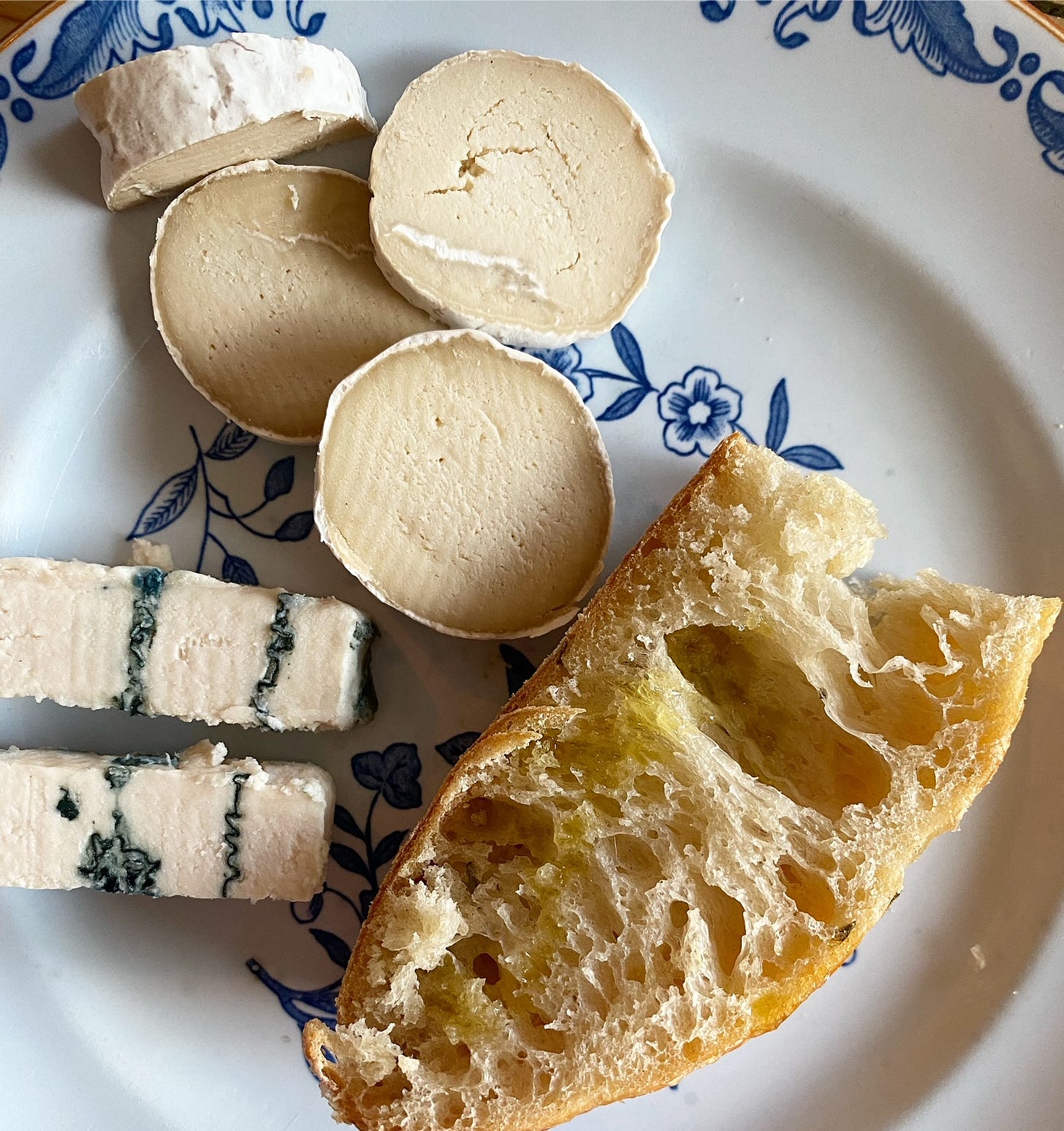All we are saying is: give (plant-based) cheese a chance!
No dessert? No problem. But in France, skip the cheese course, and some people might just question your sanity.
Back in the 16th century, Renaissance humanist François Rabelais already evangelized about the importance of cheese when he referred to it as part of the ‘holy trinity’ of the French table, together with wine and bread. Jean Anthelme Brillat-Savarin (1755-1826), gourmet, lawyer, politician and author of one of the most influential culinary masterpieces in food history, Physiologie du goût (1825), also proclaimed his love for cheese: “Un repas sans fromage est une belle à laquelle il manque un oeil” (A meal without cheese is like a beauty without an eye) and “Le fromage est le complément d’un bon repas et le supplément d'un mauvais” (Cheese complements a good meal and supplements a bad one).
Cheese is inextricably linked to French gastronomic culture, and truth be told, up until August 2022, cheese was a huge part of my life. I wrote fervently about cheese and had made it my mission to discover and truly understand the history of every French cheese out there. On average, each person in France feasts on roughly 27.2 kilos of cheese annually. The country boasts approximately 1,200 varieties (forty-five are A.O.P-certified) which can be divided into seven categories: goat’s cheese, hard, semi-hard, white mold, blue, red rind and fresh.
Choices aplenty, but what if you stopped eating animal products as I did? Not because I fell out of love with cheese, but because I switched to a plant-based diet in the hopes of reversing my husband’s diabetes (it worked) and do my share for the planet and the animals. Should people like me forever bid adieu to that wonderful French tradition? Many staunch cheese lovers will answer this question with a resounding “yes” because there’s no such thing as good plant-based cheese. Or is there?
In 2014, French plant-based cheese pioneer Mary Iriarte Jähnke apprenticed with traditional cheesemakers and started experimenting with organic almond milk and cashews. One year later, she and her husband Eric opened Jay & Joy in the 11th arrondissement of Paris. The first vegetable crèmerie in France was a fact. Though sadly it closed down last year, their cheeses are still available and worth discovering. In the Netherlands, Charlotte Zum Vörde Sive Vörding brought the first plant-based cheeses to market in 2012 – organic, without nasty additives or flavorings and based on nuts and seeds. Since then, the range of plant-based cheeses has grown steadily, especially in supermarkets. There are grated and spreadable varieties, substitutes for feta, mozzarella and camembert and slices for sandwiches.
Just like with real cheese, good plant-based cheese is made with craftsmanship, passion, as few ingredients as possible (preferably based on nuts, seed or beans) and with the same fermentation and ripening processes as real cheese. Unfortunately, most supermarket offerings are made with poor-quality ingredients. Not only does that make them inedible to the real cheese connoisseur, but it earns them abundant criticism that spreads mercilessly in ‘gourmet’ circles, leading to people being apprehensive about trying plant-based cheese. Sadly, they’ll never try the really good stuff. From someone who adored cheese, I can assure you that not all plant-based cheeses taste like plastic. When looking for a really outstanding artisan cheese (made from milk), it’s best to go straight to the cheesemaker or to a reputable cheese shop. So shouldn’t we do the same when buying plant-based cheese?
If you eat plant-based and think the intense happiness of a divine cheese board is a thing of the past, think again. There are plenty of plant-based cheeses with just as much taste and complexity as the kind made with milk. Please, let’s also stop calling it ‘fake cheese.’ It’s real food made with good ingredients. In France, look out for the cheeses from Les Nouveaux Affineurs, the aforementioned Jay & Joy and TyK Affinage.
The history of real cheese goes back at least 7,000 years. That of (delicious) plant-based cheese less than a decade. All we are saying is give (plant-based) cheese a chance! To be continued …



